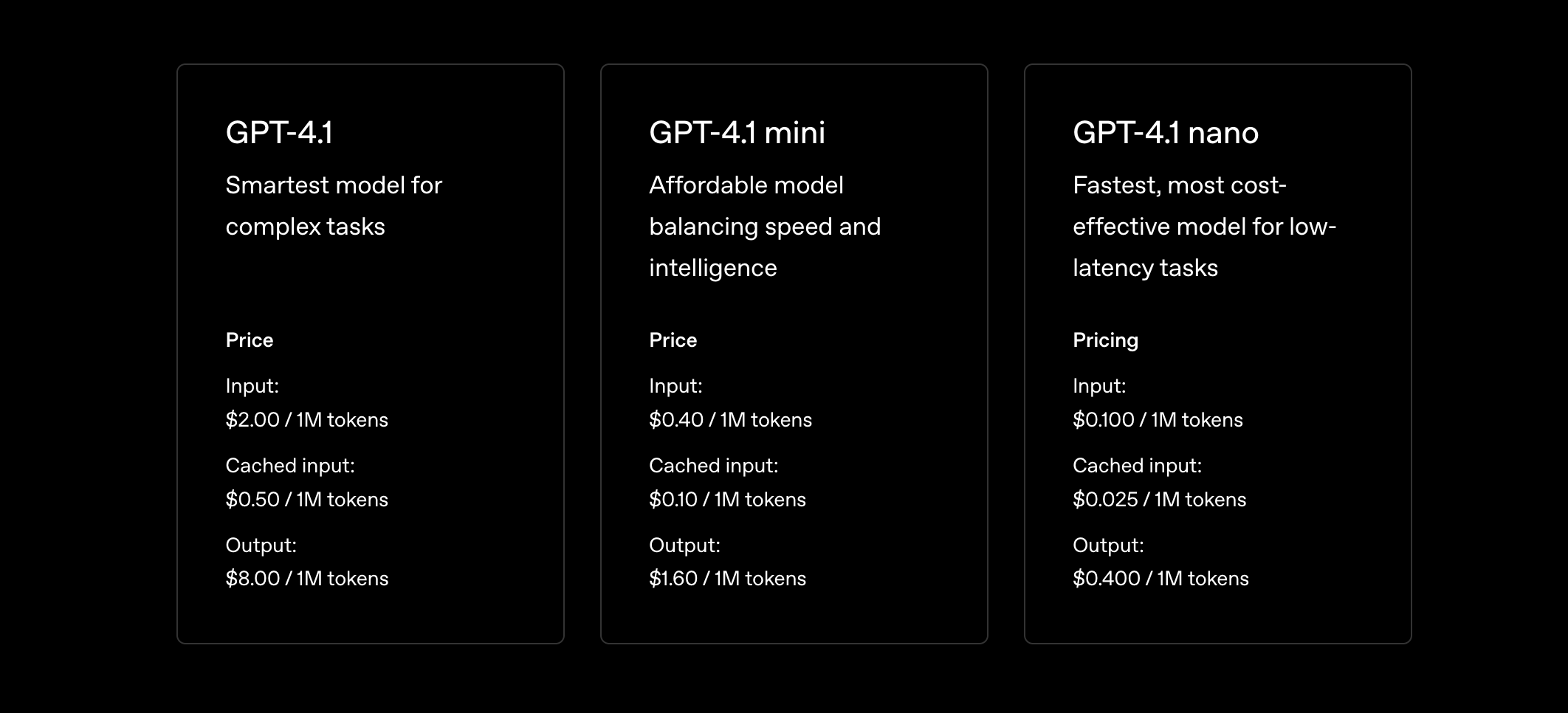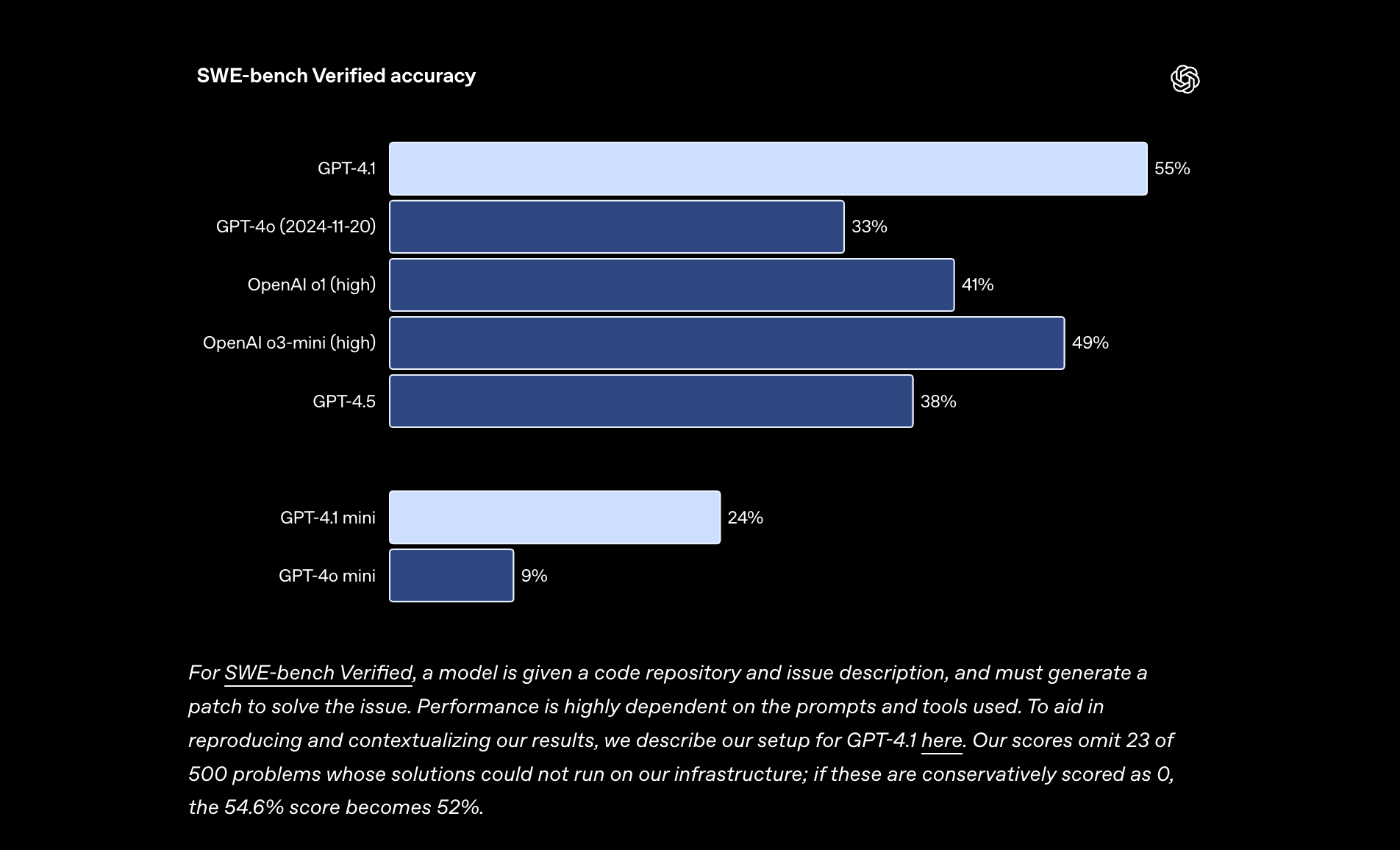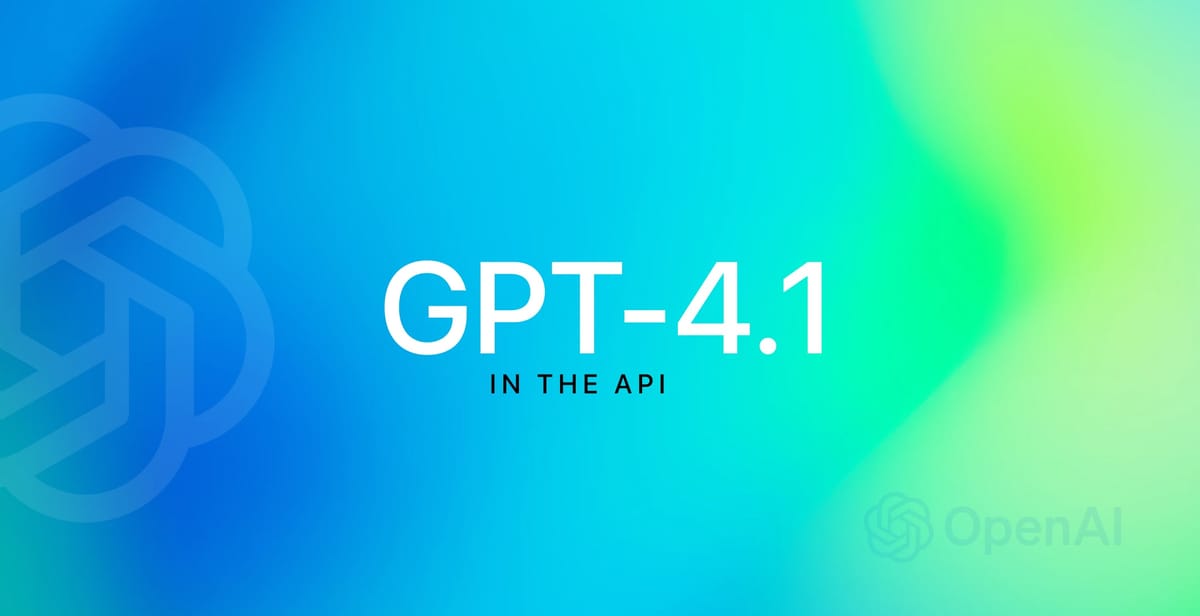OpenAI has unveiled three new AI models — GPT-4.1, GPT-4.1-mini, and GPT-4.1-nano — offering improved capabilities across coding, instruction following, and context handling while delivering significant cost reductions and performance gains.
Key Points:
- All three models support a massive 1 million token context window
- GPT-4.1 outperforms GPT-4o in coding tasks by 21.4% on industry benchmarks
- GPT-4.1 is 26% cheaper than GPT-4o with better latency
- GPT-4.5-preview will be deprecated on July 14, 2025
The three new API models each feature dramatic improvements in context window size, supporting up to 1 million tokens (equivalent to more than eight copies of the entire React codebase). This represents a significant leap from GPT-4o's 128,000 token limit.

For developers, the most practical improvements might be in performance and price. GPT-4.1 delivers a 26% cost reduction compared to GPT-4o, while GPT-4.1-mini beats GPT-4o on many benchmarks despite costing 83% less and offering nearly half the latency. The new nano variant becomes OpenAI's fastest and cheapest model ever, targeting low-latency applications like classification and autocompletion.
"These models push performance forward at every point on the latency curve," OpenAI stated in their announcement. The company is also increasing the prompt caching discount to 75% (up from 50%) for repeated context, further reducing costs for specific use cases.

Beyond the economics, GPT-4.1 excels in several key areas including coding capabilities. The model achieves 54.6% on the SWE-bench Verified benchmark, which measures real-world software engineering skills — a 21.4% absolute improvement over GPT-4o and 26.6% over GPT-4.5. It also more than doubles GPT-4o's performance on Aider's polyglot diff benchmark for code editing tasks.
Several companies have already reported significant improvements in their specialized applications. Windsurf found that GPT-4.1 scored 60% higher than GPT-4o on their internal coding benchmark, while Qodo's testing showed the new model provided better code review suggestions in 55% of cases. Financial firm Carlyle reported 50% better performance on extracting granular financial data from complex documents.
Instruction following, a persistent pain point in AI systems, sees substantial enhancement with GPT-4.1 scoring 38.3% on Scale's MultiChallenge benchmark — a 10.5% absolute increase over GPT-4o. Legal tech provider Thomson Reuters observed 17% accuracy improvements in multi-document review when testing with their CoCounsel AI assistant.
For the average user, these improvements won't be immediately accessible in ChatGPT, as OpenAI clarified the new models will only be available via the API. However, the company noted that "many of the improvements in instruction following, coding, and intelligence have been gradually incorporated into the latest version of GPT-4o" in ChatGPT.
The company also announced plans to deprecate the GPT-4.5 Preview API on July 14, 2025, giving developers three months to transition to the new models. According to OpenAI, "GPT-4.1 offers improved or similar performance on many key capabilities at much lower cost and latency."
The emphasis on reliability, efficiency, and cost reduction suggests the company is working to cement its position in the enterprise market amid growing competition from companies like Anthropic and increasingly efficient open-source alternatives.
For now, developers can start testing the new models, which OpenAI describes as "a significant step forward in the practical application of AI." The company's refreshed knowledge cutoff now extends to June 2024, providing more recent information than previous models.

